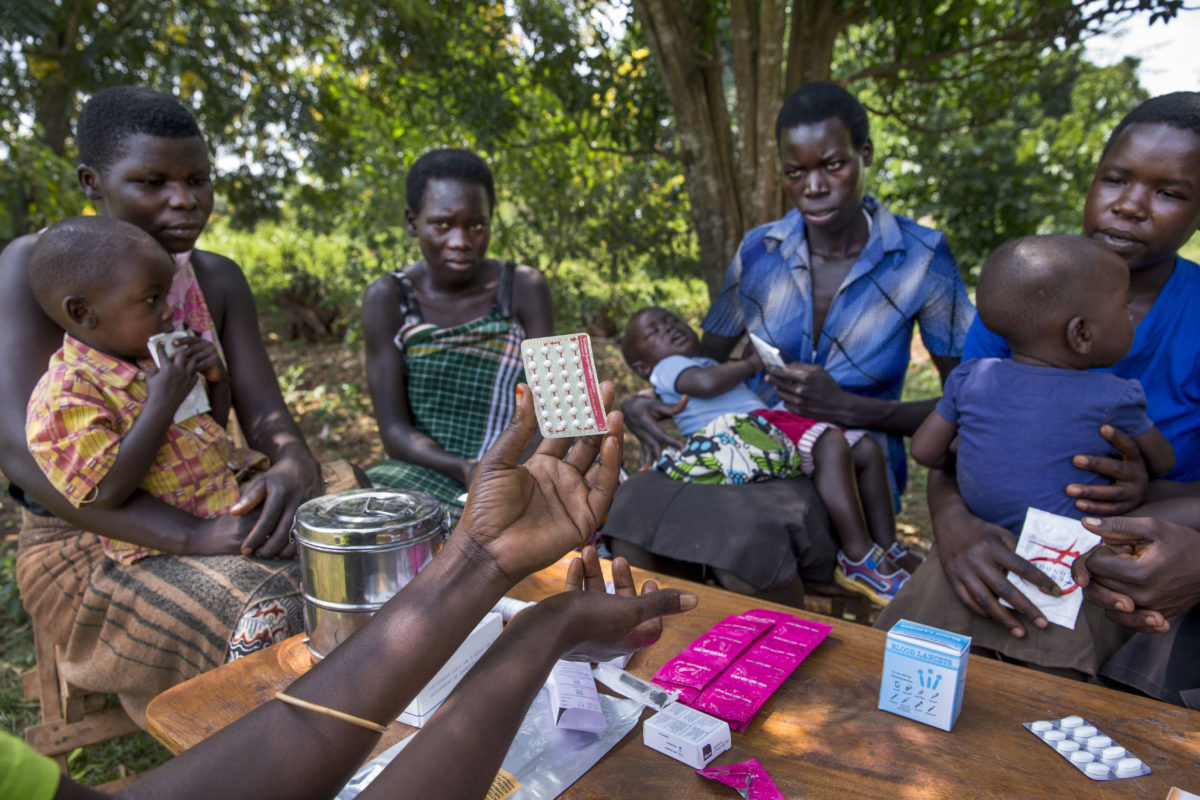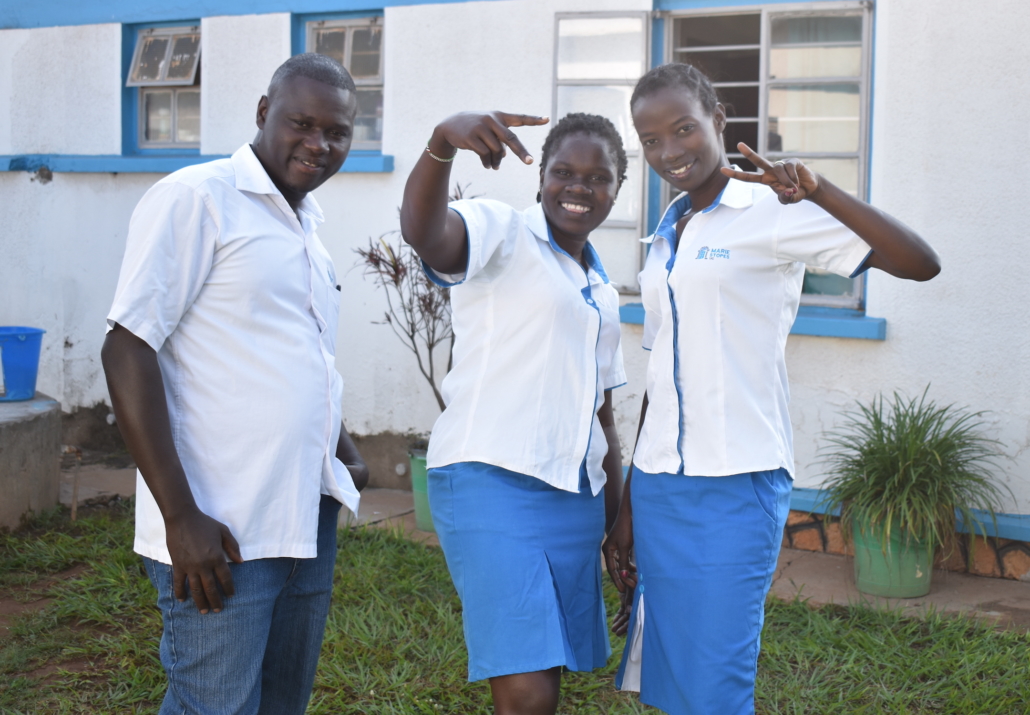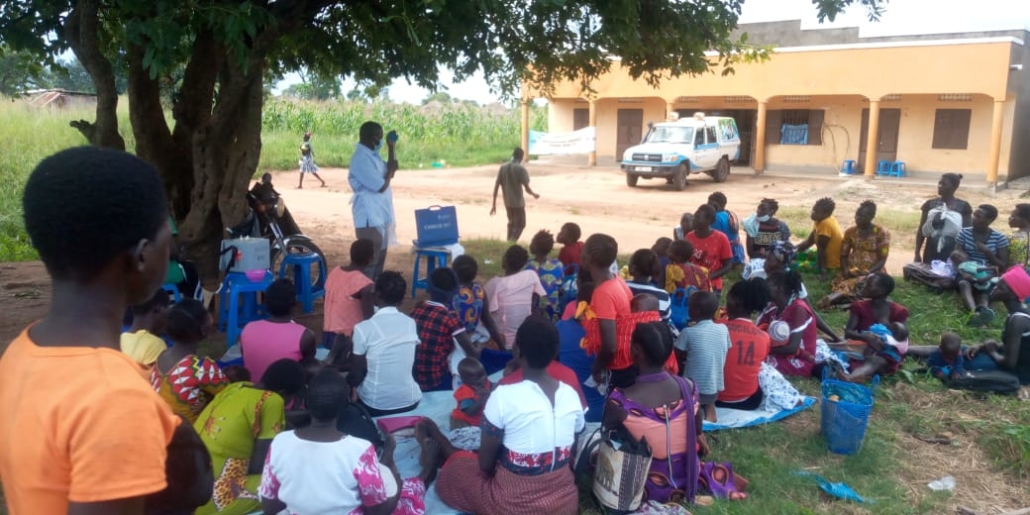
Making Contraceptives Accessible to Adolescent Youth in Northern Uganda
Marie Stopes Uganda’s Gulu Light Outreach Story
October 6, 2022
By: Ojok James Onono
Marie Stopes Uganda’s Gulu Light Outreach provides free mobile clinics that engage Northern Ugandan communities on reproductive health. Using peer-to-peer influence and outreach in markets and community centers, the team educates young people on contraception. It aims to spur family planning and support a culture that prioritizes the futures of its youth and the sustainability of its environment.
Marie Stopes Uganda, through its project Gulu Light Outreach, provides free mobile clinics that engage the Lord Resistance Army post-war conflict community in Northern Uganda on reproductive health. This community faces challenges that have gripped headlines, including:
- Environmental depletion.
- Poverty.
- Girls dropping out of high school drop due to early pregnancy.
- Sexual and gender-based violence.
The project supports a variety of health initiatives such as free HIV testing and counseling, family planning sensitization and services, cervical cancer screening, and others. Most notably, the project tries to make contraceptives accessible to adolescent youth between the ages of 15–24 in the Northern Uganda districts of Nwoya, Gulu, Amuru, Pader, and Kitgum.
According to the United Nations Children’s Fund (UNICEF), the prevalence of child marriage is 59% in Northern Uganda. This percentage varies per district. The Omoro district alone saw a teenage pregnancy rate of 28.5% in November 2019 (higher than the national average of 25%). This pushes young people to drop out of school and has the biggest impact on female children. It also contributes to poverty in communities and low access to resources. Thus, increasing access to contraceptives is one of the mechanisms Marie Stopes developed to respond to some of these communities’ challenges.
Martin Tumusiime, the Gulu team leader of the initiative, said encouraging young people to access contraceptives takes a special strategy. The majority of young people Tumusiime’s team interacts with are afraid to get contraceptives—even in hospitals or major health centers—so they use peer-to-peer influence and outreach in markets and community centers to educate young people.
“We provide condoms, pills, injectables, educate them on using moon beads. Or, those who have already given birth, we tell them [about] the usage of breastfeeding for family planning, and the initiative is highly in demand,” said Tumusiime. Indigenous contraceptive methods, like breastfeeding and periodic abstinence, have proven popular and are often more readily adopted.
Adolescents are the primary target, but Tumusiime said the project also engages other age groups—provided they turn up for the services when the team is in their area. “We don’t turn down any mother who comes for our services despite the fact that we focus on the adolescent youth with the strategic mission of curbing down teenage pregnancy that has been destructive to the educational lives of young girls in the region.” He added that their goal is to empower the community to feel the benefit of reproductive health knowledge. This lets them plan for their future children, rather than being stressed future parents who can’t provide for their children’s basic needs.
Benefits of Young People Accessing Contraceptives
Tumusiime also explained why it is important to make contraceptives accessible to the community as a whole.
For adolescents, contraceptive accessibility allows them to make informed decisions in marriage and avoid the pressures associated with pregnancy. It helps steer the overall community away from the burdens associated with low resources and dependency. For example, young girls who get pregnant may become a burden on their parents. Often, the girl then drops out of school, and the boy might be prosecuted—especially if the girl is below the age of 18. This perpetuates a stressed young generation.
Tumusiime also added that many young girls undergo unsafe abortion procedures due to limited knowledge of reproductive health, which can result in complications or even death. Therefore, the initiative is empowering young people on reproductive health as a whole.
According to Tumusiime, it is easier for the government to provide quality public services, like education and health, in communities where households practice family planning.
“So our people also need to know that access to contraceptives is very important because it [reduces] scramble for public services as well as [strain on] the environment,” Tumusiime added.
It is now five years since Gulu Light Outreach’s start. Despite resistance from some radical traditionalists and religious groups, the project has registered over 17,691 young people.
Contraceptive Access and the Environment
Dr. Collins Okello, the Dean Faculty of Agriculture and Environment at Gulu University, is the current principal investigator for the project Unlocking the Potential of Green Charcoal Innovations to Mitigate Climate Change in Northern Uganda (UPCHAIN). He said sexual and reproductive health initiatives are very important to environmentalists because it is a sustainable development agenda—the issues of contraceptives support family planning and help reduce pressure on the environment in the long run.
“When you have a poverty-stricken, unplanned population, of course they will turn to the environment for every family need, and this will stress the environment completely,” Dr. Okello submitted.
According to Dr. Okello, many studies have found that though there are larger causes, poverty-stricken people can put pressure on their immediate ecosystem by looking at it as the only source of income. The massive charcoal and logging industries in Northern Uganda are current examples of this issue.
In 2018, a local activist group called Our Trees, We Need Answers surveyed environmental degradation. It looked at hot spots in the Northern Ugandan districts of Amuru, Nwoya, Lamwo, and Agago. The survey showed that two-thirds of the forest cover in the region was already lost to the commercial logging and charcoal business. This has endangered tree species such as the shea nut tree and Afrizella-Africana, or Mbeyo. The findings cited poverty as one of the driving forces behind environmental degradation in the region.
Developing a Resilient Strategy
Marie Stopes Uganda’s initiative has seen remarkable success in helping young people in the region access contraceptives. At the same time, teaching indigenous family planning methods is equally important for enabling families and communities to voluntarily decide how they come together, grow, use resources, and impact the environment around them. This will allow the community, in the long run, to develop a culture of voluntary family planning as a resilient, freely given reproductive health and environmental strategy.





